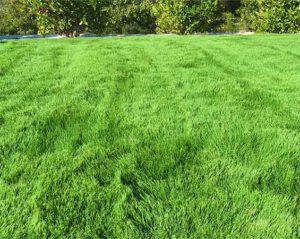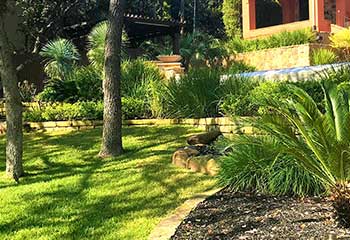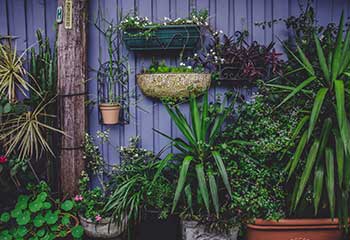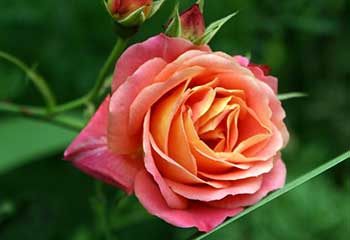
It’s a well documented fact that Texans love Texas. Our state is diverse, beautiful, and an all-around healthy place to live. To keep our state this way, we all need to do our part! A major part of conserving the natural beauty of Texas, is implementing water conservation as a part of our daily lives.
When it comes to conservation, one of the first places to consider making adjustments to is usage in your everyday landscape care. It has been estimated that 30 to 50% of the total water usage in each household goes to our lawns and gardens. Learning to conserve in this area will help you to save water, money, and goes a long way to help your local environment.
Many homeowners don’t realize how much water is being lost when lawns are watered improperly. If you water your lawn too quickly, water can be lost as runoff, which not only causes you to lose money, it may also pollute streams and lakes by carrying sediment, residual pesticides, or fertilizers with it. If water is applied too late in the day, or to soil that does not absorb it quickly enough, water can also be lost to evaporation.
To prevent this loss, it’s important to use an effective sprinkler system for irrigation. Sprinkler heads should be adjusted so they are not overspraying onto driveways or walkways. Heads should also be adjusted so they spray large drops instead of fine mists.
Many homeowners don’t realize watering the lawn too much can cause more harm than good. Using too much water on your lawn can leach vital nutrients from plant roots and cause fungus and root rot. Keeping to a schedule that provides deep but infrequent watering will help to strengthen your lawn’s root system and increase drought tolerance in our hot Texas summers.
The ideal time to water your lawn is the early morning. This timing provides maximum infiltration, decreased evaporation, and reduces the amount of time that irrigation water sits on the leaf blade. These factors all lead to deeper roots, less heat stress, and less fungus occurrence.
Ornamental and fruit trees, as well as shrubs, vines, vegetables, or container plants, will benefit from drip irrigation. Drip irrigation is preferred because it slowly applies water to the soil through low pressure emitters, or bubblers directly to the root zone. Watering this way causes less runoff or evaporation, resulting in more water is staying in your garden.
Another great way to reduce water needs is to make sure your beds are adequately mulched. Using mulch will help your beds retain moisture, prevent erosion, and suppress weeds. A thick mulch layer can also protect your plants from temperature changes. By using a mulch, you could potentially reduce your need to water your beds by up to 60%!
One final way to conserve water is to install a rain harvesting system. Collecting rainwater to use in your landscape is a great way to save water. If 10% of the residential roof area in Texas was used to collect rainwater, we could conserve more than 30 billion gallons of water each year! That’s an impressive number, but there are clear benefits locally as well. By using rainwater you collect on your property, you are not only reducing runoff into the local lakes and streams, and you can greatly reduce your water bill, and provide untreated, pH neutral irrigation to your landscape!
If you’d like more information about our professional lawn care service, make sure to get your free estimate!
If you have any questions about how you can improve your existing irrigation system, or if you’d like to find out more information about installing an irrigation or rain harvesting system, please contact ECO Irrigation & Landscaping at 512-778-9919 or visit www.ecoirrigation.com.










